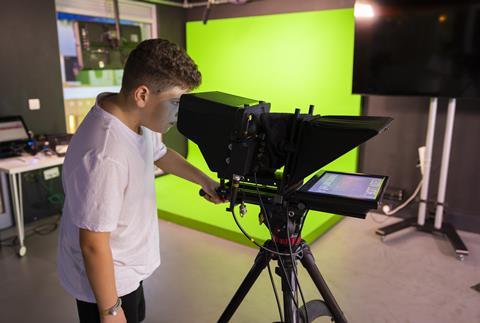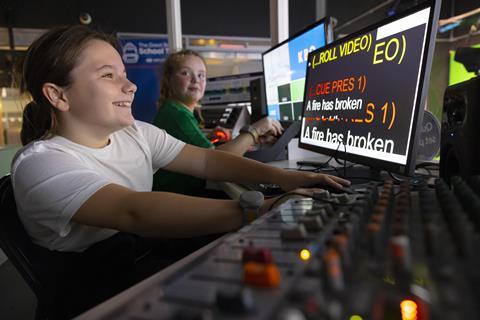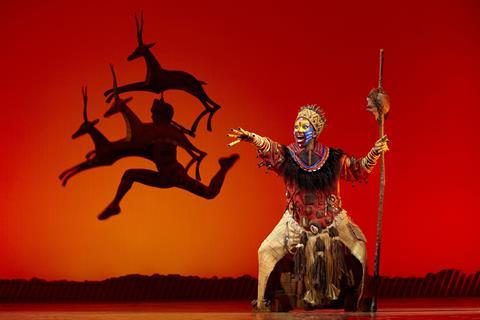New research indicates that seven in ten young adults believe the UK education system is too ‘one size fits all’, sparking Hyundai to launch its Great British School Trip programme for a second year running.

The Great British School Trip programme will support 35,000 children in its second year by sending them on school trips across the UK this academic year, with an emphasis on experiences that encourage creativity.
As part of research carried out, Hyundai found that 85% of young adult respondents believe that the UK education system should have a greater emphasis on individual learning needs.
“Without this scheme, and the funding provided, we wouldn’t have gone, and many of the students would never have experienced the theatre.”
Laura Fines, teacher at New Fosseway School in Bristol
Furthermore, 72% wished they had studied more creative subjects at school.
With a focus on trips from the programme’s Imagination & Curiosity pillar, the second year of the Great British School Trip will look to combat some of the issues unearthed in the research project and help teachers plug ‘the creativity gap’.

More than 560 venues across the UK are part of the programme with The V&A, The Design Museum and additional English Heritage sites joining as part of the focus on creative experiences this school year.
Ashley Andrew, president of Hyundai & Genesis UK, said: “The findings from this study highlight the critical role the education system plays and it’s fascinating to understand better the desire for more creativity and creative learning in school.
“Creativity is something we truly value at Hyundai, with design, innovation and technology at the core of our business. As part of our £1 million investment into UK school trips this year, we hope our commitment will break down more barriers to creative learning.”
With 28,000 school children supported in year one, The Great British School Trip will see Hyundai continue to offer additional bursaries to help schools most in need fund their trips, including booking fees and travel costs.
Case studies
A theatre visit to remember
On a trip to see Disney’s The Lion King at Bristol Hippodrome, Laura Hines and 20 of her Key Stage 3 and 4 students from New Fosseway School in Bristol were glued to the performance.
Laura highlighted that all of her students love the creative arts but most of them had never been to a theatre due to financial restrictions and the severity of their needs.
Without the free tickets provided by The Great British School Trip programme, the school wouldn’t have been able to afford the trip, even with discounted tickets.

The biggest barriers to going on school trips that New Fosseway School face as a SEND school, are the logistics. A lot of the students have profound and severe learning disabilities and difficulties as well as sensory processing disorders, so they require bespoke experiences that allow for all children to be included, and these tend to be more expensive.
Laura said: “The free tickets provided by The Great British School Trip initiative was a wonderful opportunity and a very proud moment for the families and staff to take pupils to the theatre in the evening.
“Without this scheme, and the funding provided, we wouldn’t have gone, and many of the students would never have experienced the theatre. The students still talk about what they saw on the trip and how much joy and happiness it brought to them.”
Adventure outside the classroom
Russ Jones, deputy headteacher of Greenpark Academy in Norfolk said his students rarely get an opportunity to do anything outside of visiting their local park. So, when Year 6 pupils got presented with a visit to PGL, Caythorpe Court through The Great British School Trip initiative, they had the exciting opportunity to try something new.
On the trip students took part in activities such as rock climbing and archery; building confidence and teamwork skills – skills that these children have never had the chance to develop before.
Russ said: “School trips like the one to PGL enhance the learning of children who find more traditionally ‘academic’ areas of the curriculum more challenging because they can draw on real life experiences and apply these to their learning.
“It was also clear that the students were better equipped for their transition to secondary school after the trip, as they became more resilient, and had the chance to build new friendships that they wouldn’t have had the confidence to do before the trip. The children left happy and proud of what they had achieved.”
To find out more about The Great British School Trip programme and how you can get involved, visit: greatbritishschooltrip.com










